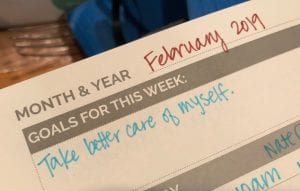
In the fall of last year, I was asked to participate in a faculty diversity panel for a leadership retreat at my university. I did so. I rescheduled my week, drove 8 hours roundtrip, prepared my words carefully, spoke from my heart, and did it all for no compensation. As part of my participation, I was asked to fill out travel paperwork for liability purposes. I did so.
Last week, I was informed by my department office that I could be reimbursed for mileage to the retreat. It was a token, but I appreciated the gesture. I was then informed that the money would be coming from my own personal travel funds. I asked if it might be possible for the Provost’s office (who sponsored the retreat) or the Vice Provost’s office (who asked me to be part of the panel) to reimburse the $80 mileage cost so that I could maintain my scarce travel funds for the multiple academic conferences I was scheduled to participate at in the Spring. My department assistant said that it couldn’t hurt to ask.
I sent an e-mail to the administrative staff member who had helped to coordinate the panel. I never heard back. After a couple of days, I e-mailed my department chair and dean and they both offered funding for my mileage. While I thought that it made more sense for the funding to come from the university, since I was there at the request of the university, I was just grateful that it was taken care of.
End of story…or so I thought.
Today, I was told, by my department chair that our fiscal office had been contacted by the Provost’s office who informed them that a “faculty member” had contacted the Provost’s office directly for money and that all requests for money should be processed first at the department level then at the college.
I had broken protocol, and apparently, I should have known better.
I want to preface the forthcoming rant with a few things that shouldn’t be relevant but may come up: 1) In my email to the Provost’s administrative staff, I was both gracious and respectful, even to the point of being deferent. I reminded the administrator why I was e-mailing (specifically that I had participated in a faculty diversity panel for the retreat that was coordinated by that office) and also said that if I wasn’t emailing the appropriate place that I hoped they would excuse me and let me know who to contact; 2) I also stressed that the $80 wasn’t a big deal (Except that it was…or should have been. I was already doing hours of unpaid labor. I was not asking for a stipend. I wouldn’t have even asked for the $80 mileage had I not had to file the request to cover the liability); 3) I am not upset because I don’t respect protocols. There are reasons for protocols and I know every faculty member on campus can’t go to the provost office for requests EVEN WHEN the request of the faculty member was made by the Provost. I understand that.
But, here is why I am angry. The humanizing and respectful thing to do would have been for the administrator to e-mail me directly to say, “Hi Betina, Thanks for your message and we really appreciated your contribution to the leadership retreat. There’s actually a protocol for reimbursement that should start with your department office. If your department and/or college office doesn’t have funds to reimburse you, then have your [title of fiscal officer] contact us. We don’t deal with faculty member reimbursement requests directly because we don’t have the capacity to do so. Best, Administrator” That would have actually been a much easier e-mail to send than 3 e-mails around me which eventually got back to me and referred to me as “a faculty member in your college” and completely dismissed that there was LOGIC to my request.
To be fair to my institution, this is only the second time in 6 years this has happened to me personally. The other time was in my first year when I was not angry, I was sobbing uncontrollably in frustration at the fact that a poster order that I tried to place at least 5x was kicked back to me with no explanation and that NO ONE would explain to me how to properly make the request. This happened in my college fiscal office.
With that incident fresh in my mind, I went to a local school where one of the first things I saw was a substitute teacher remove an African American boy from a class that one of my student teachers was teaching. Neither she nor I felt that this was an appropriate thing for him to do, but neither of us was technically the teacher of record. I believe that the substitute thought he was doing the right thing by removing the disruption from the class. I imagine that the protocol was for “disruptive, defiant” students to be sent to a “buddy teacher.” My student teacher was in an awkward position. I was in an awkward position. But neither of us should have let our awkwardness stop us from doing what was right.
I am clear that a little 12-year old who wasn’t doing anything more than, PERHAPS, chatting with a friend (and several other students were as well) missed out on his English class today and sat in another room, feeling like his teacher (and this other random adult in the room) didn’t have his back. My student teacher and I spent most of a 2-hour debrief talking about how to own responsibility in that situation and build back the relationship with this student. She told me of an earlier incident in which the student had cried in class because another teacher hadn’t listened to his side of the story. Her mentor teacher had simply dismissed his deep distress because the other teacher hadn’t called his mother or written a referral.
No harm. No foul.
Except that it is. What message are the educators in this room giving this child about his life, his emotions and his education mattering? Why are we so willing to dismiss the damage done if the end result is that the “situation is resolved” and “no one got in trouble.” Why don’t we tell these stories?
I write about these two incidents not because they are equal in degree, but because they might be easily dismissed by those who cannot understand how deeply traumatizing dehumanization is. I am an educator because I believe in the humanizing possibilities of education, in the power of education to liberate and connect us, and in the power of people, the power of love, the power of words.
But today, I am deeply discouraged by our educational institutions, even ones with individuals that I firmly believe are trying their best to “follow the protocol” and keep the ship running.
I will get my $80 from the university.
My student teacher will take responsibility for her part in what happened to her student tomorrow and work to reconcile their relationship and rebuild trust.
But long after that $80 is spent (to be honest, it’s already spent, but compensation as dehumanization isn’t the point of this post), long after the bell rings tomorrow, long after the next time he is or I am put in our places and reminded that we are only conditionally accepted, even by those who may ostensibly be on our side, the institutions will still exist, and they will continue to dehumanize us and those who are like us or unlike us, if we continue to accept that this is protocol. This is the way things are.
Unless we work to change these institutions. Unless we work to humanize them. Unless we remember to relate to one another and be responsible for the fact that our institutional protocols only serve us, if we can remember that we should be serving one another.
I hope you’ll read this. I hope you’ll share it. I hope you’ll commit to doing better. I believe telling our stories can convict people to change and can spark collective action. We cannot change institutions alone, but in solidarity with humanity, we can find the power and courage to change.










